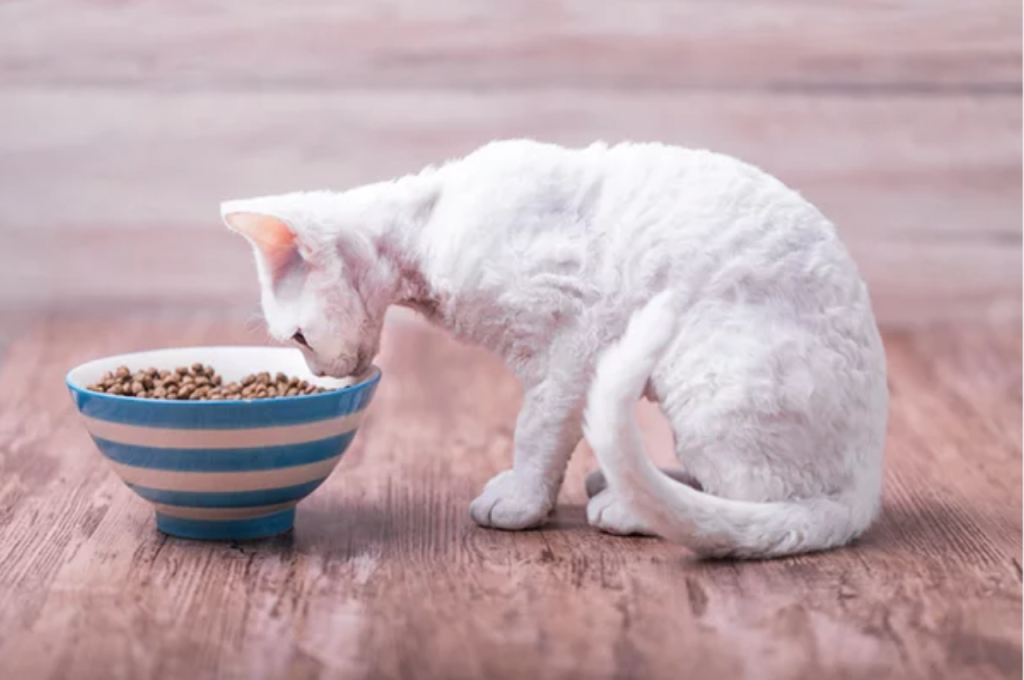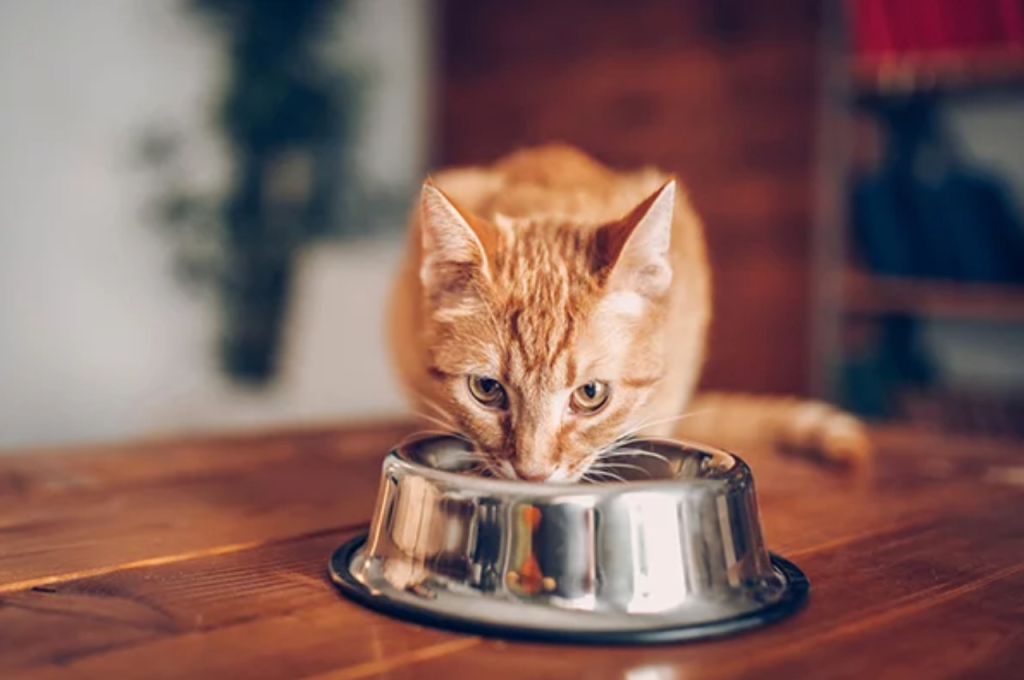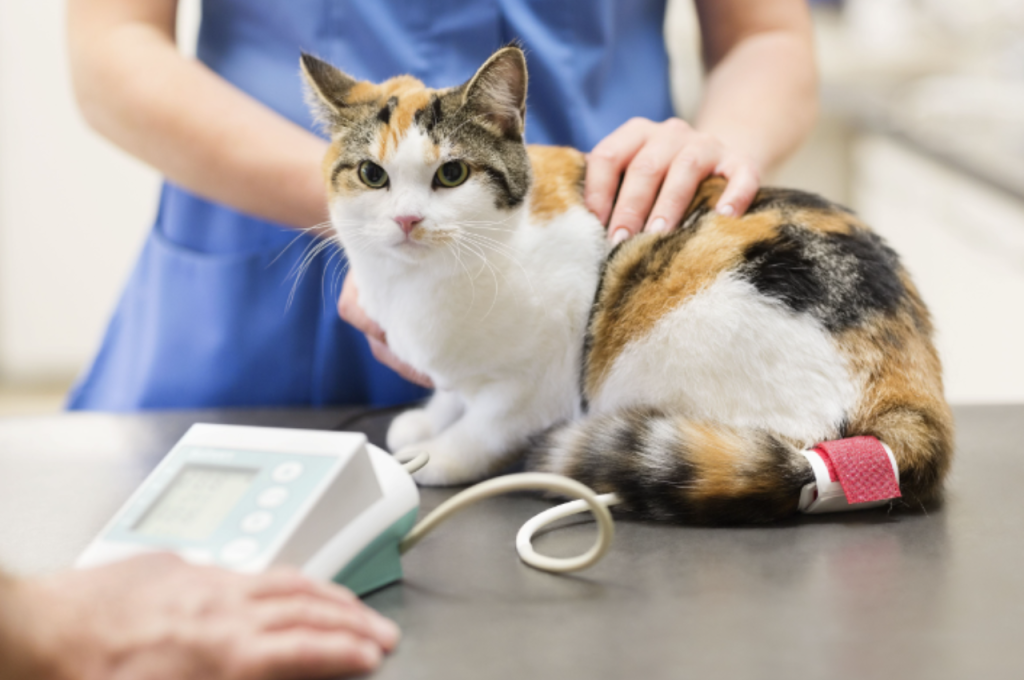Your cat may be losing weight due to various reasons, including dental issues or underlying health conditions. It is essential to consult a veterinarian promptly for a proper diagnosis and treatment plan.
Sudden weight loss in cats can be a sign of serious health issues that need immediate attention to ensure your pet’s well-being. Cats losing weight unexpectedly can be a cause for concern among pet owners. While some fluctuations in weight are normal, significant and sudden weight loss could indicate an underlying problem.
In this blog post, we will explore the common reasons why your cat might be losing weight, the potential health risks associated with it, and what steps you can take to address this issue effectively. By understanding the possible causes and seeking timely veterinary care, you can help your feline companion maintain a healthy weight and overall well-being.
Introduction to Feline Weight Loss
Is your cat losing weight? Feline weight loss can be caused by various factors such as dental issues, thyroid problems, or even stress. It’s important to monitor your cat’s weight and behavior and consult with a veterinarian if you notice sudden or unexplained weight loss.

Feline weight loss can be a cause for concern for cat owners. While some cats may naturally lose weight due to aging, others may experience sudden weight loss due to underlying health issues. As a cat owner, it is essential to understand the initial signs and symptoms of weight loss and the importance of monitoring your cat’s weight. In this blog post, we will explore the reasons behind feline weight loss, the symptoms to look out for, and why monitoring your cat’s weight is crucial for their health and wellbeing.
Initial Signs and Symptoms
Weight loss in cats can be gradual or sudden, making it essential to keep an eye out for any changes in your cat’s behavior or physical appearance. Some initial signs and symptoms of feline weight loss include:
- Reduced appetite or an increase in appetite without weight gain
- Lethargy or decreased activity levels
- Dry or dull coat
- Visible ribcage or spine
- Vomiting or diarrhea
If you notice any of these symptoms, it is crucial to seek veterinary attention immediately. Early detection and treatment of the underlying cause of weight loss can prevent further complications and improve your cat’s chances of recovery.
Importance of Monitoring Cat Weight
Monitoring your cat’s weight is vital for their overall health and wellbeing. Regular weight checks can help detect any changes in your cat’s weight, enabling you to take prompt action before the issue escalates. Additionally, monitoring your cat’s weight can help you determine if your cat is at risk of obesity or other weight-related health problems. To monitor your cat’s weight, it is essential to use a reliable scale and weigh your cat regularly. Keep a record of your cat’s weight and any changes in their behavior or physical appearance. If you notice any unusual changes, seek veterinary attention immediately.
In conclusion, feline weight loss can be a cause for concern for cat owners. Understanding the initial signs and symptoms of weight loss and the importance of monitoring your cat’s weight is crucial for their health and well-being. By keeping an eye out for any changes in your cat’s behavior or physical appearance and seeking veterinary attention immediately, you can ensure your cat receives the best possible care and treatment.
Common Health Issues Leading to Weight Loss
Weight loss in cats can be a concerning issue for pet owners. While some weight loss may be attributed to natural causes such as aging or increased activity, it is important to be aware of common health issues that can lead to unintentional weight loss in cats. Identifying these underlying health conditions is crucial in providing timely veterinary care and ensuring the well-being of your feline friend.
Dental Problems in Cats
Poor dental health can contribute to weight loss in cats. Cats with dental issues may experience pain or discomfort while eating, which can lead to a decreased appetite. Additionally, infected gums or tooth decay can result in difficulty chewing, making it challenging for cats to consume their regular meals. As a result, cats may gradually lose weight over time.
Regular dental check-ups and maintaining good oral hygiene are essential in preventing and addressing dental problems. Brushing your cat’s teeth, providing dental treats, and incorporating dental health into their routine can help maintain a healthy mouth and prevent weight loss related to dental issues.
Parasitic Infections Affecting Nutrition
Parasitic infections can affect a cat’s ability to absorb nutrients from their food, leading to weight loss. Internal parasites such as worms, including roundworms, hookworms, and tapeworms, can cause malabsorption of nutrients in the intestines. This can result in decreased appetite and weight loss.
Regular deworming and preventive measures, such as keeping your cat’s living area clean and free from parasites, can help reduce the risk of infestation. If you suspect your cat has a parasitic infection, it is important to consult with a veterinarian for proper diagnosis and treatment.
By addressing dental problems and preventing parasitic infections, you can help ensure your cat maintains a healthy weight and overall well-being. Remember, if you notice any significant or unexplained weight loss in your cat, it is always best to seek professional veterinary advice to identify and address any underlying health issues.
Chronic Diseases and Weight Loss In Cats
If you notice your cat losing weight, it could be due to chronic diseases. Conditions like diabetes, hyperthyroidism, or kidney disease can lead to weight loss in cats. It’s important to consult with a veterinarian to determine the underlying cause and develop a suitable treatment plan for your feline friend.
Kidney Disease and Its Impact
Chronic diseases can cause significant weight loss in cats. Kidney disease is one of the common chronic conditions that can result in reduced appetite and weight loss in cats. The kidneys play a crucial role in filtering out waste and maintaining hydration. When the kidneys are not functioning correctly, toxins can build up in the blood, leading to a loss of appetite and weight loss. In advanced stages of kidney disease, cats may also experience vomiting, lethargy, and dehydration.
Hyperthyroidism and Metabolic Changes
Hyperthyroidism is another common chronic condition in cats that can lead to weight loss. The thyroid gland produces hormones that regulate metabolism, and when the gland produces too many of these hormones, it can result in increased metabolic rate and weight loss. Cats with hyperthyroidism may also experience increased appetite, vomiting, and diarrhea. If left untreated, hyperthyroidism can lead to heart disease, high blood pressure, and other health problems.
If you notice that your cat is losing weight, it is essential to consult with your veterinarian to determine the underlying cause. Early detection and treatment of chronic diseases can help prevent further complications and improve your cat’s quality of life. Your veterinarian may recommend a combination of medications, dietary changes, and other management strategies to address your cat’s specific needs.
Dietary Factors Influencing Cat Weight
When it comes to the weight of your cat, dietary factors play a crucial role. Understanding the influence of diet on your feline friend’s weight is essential for maintaining their health and well-being. In this article, we will explore the various dietary factors that can contribute to weight loss in cats, with a focus on inadequate diet, malnutrition, food allergies, and intolerances.

Inadequate Diet and Malnutrition
An inadequate diet or malnutrition can lead to weight loss in cats. This may occur when a cat is not receiving sufficient nutrients or calories from their diet, resulting in a gradual decline in their body weight. Cats require a balanced diet that includes essential nutrients such as protein, fats, vitamins, and minerals to maintain a healthy weight.
Food Allergies and Intolerances
Cats can also experience weight loss due to food allergies and intolerances. When a cat consumes food to which they are allergic or intolerant, it can lead to digestive issues and nutrient malabsorption, ultimately resulting in weight loss. Identifying and eliminating potential allergens from the cat’s diet is essential to prevent further weight loss and promote overall well-being.
Psychological Contributors to Weight Loss
Psychological factors can play a significant role in a cat’s weight loss. Understanding the psychological contributors to weight loss in felines is crucial in addressing their well-being. Stress, anxiety, depression, and behavioral changes can all impact a cat’s weight, and being aware of these factors can help in providing the necessary support and care.
Stress and Anxiety in Felines
Cats, like humans, can experience stress and anxiety due to changes in their environment, routine, or social interactions. Loud noises, new pets, or changes in their living space can lead to heightened stress levels in cats. This can result in reduced appetite and weight loss, as stress and anxiety can affect their eating patterns.
Depression and Behavioral Changes
Cats can experience depression due to various factors such as the loss of a companion, lack of mental stimulation, or illness. Depression may lead to behavioral changes, including decreased interest in food and reduced physical activity. Identifying and addressing the potential causes of depression is essential in helping a cat regain their appetite and maintain a healthy weight.
Age-related Weight Loss in Cats
As cats age, it’s common for them to experience weight loss. Understanding the reasons behind age-related weight loss in cats is crucial for their overall well-being and health.
Geriatric Cats and Decreased Appetite
Geriatric cats may start losing weight due to a decreased appetite that often accompanies old age. This can be caused by dental issues or underlying health problems.
Muscle Atrophy and Aging
Muscle atrophy is another factor contributing to weight loss in aging cats. As they get older, cats may experience a natural decline in muscle mass, leading to weight loss despite a consistent diet.
Diagnostic Approaches
When a cat is losing weight, it can be a cause for concern. To determine the underlying issue, various diagnostic approaches are utilized by veterinarians. These approaches can help identify the root cause of weight loss and guide appropriate treatment.
Veterinary Examinations and Tests
Veterinary examinations are crucial in diagnosing weight loss in cats. Physical examination allows veterinarians to assess the cat’s overall health, palpate the abdomen for abnormalities, and check for signs of dehydration or muscle wasting. Furthermore, blood tests can reveal important insights into the cat’s health, including organ function, blood sugar levels, and signs of infection or inflammation. Urinalysis is also performed to evaluate kidney function and detect urinary tract infections.
When to Seek Professional Help
If your cat is experiencing unexplained weight loss, it’s essential to seek professional help promptly. Rapid weight loss or a sudden change in your cat’s weight should prompt an immediate visit to the veterinarian. Additionally, if your cat is showing other concerning symptoms such as vomiting, diarrhea, or lethargy, it’s important to seek professional guidance without delay.
Treatment and Management Strategies
Effective treatment and management strategies for a cat losing weight include addressing underlying medical conditions, adjusting their diet and feeding schedule, and increasing their physical activity. Regular visits to the veterinarian can help identify any health issues and ensure appropriate care.
Treatment and Management Strategies Nutritional Support and Diet Adjustments Incorporating nutritional support and making diet adjustments are crucial in helping a cat regain weight. A high-calorie, nutrient-dense diet can aid in weight gain. Feeding frequent, small meals may be beneficial. Additionally, consulting a veterinarian for a tailored dietary plan is essential.
Medications and therapies may be employed to address underlying health issues contributing to weight loss. This can include medications to treat underlying diseases, such as hyperthyroidism or diabetes, that may be causing weight loss. Therapies like fluid therapy or nutritional supplements may also be recommended. Regular Monitoring and Veterinary Check-ups Consistent monitoring of the cat’s weight and health is important to assess the effectiveness of the treatment plan. Follow-up appointments with the veterinarian will allow for any necessary adjustments to the treatment plan.
Open communication with the vet is crucial for the cat’s well-being. Environmental Enrichment Providing a stimulating environment and mental stimulation is vital for a cat’s well-being. This can include interactive toys, climbing structures, and playtime to encourage physical activity. Engaging with the cat can help reduce stress and anxiety, contributing to weight gain.
Supportive Care Ensuring the cat has a warm and comfortable environment is crucial. Providing a quiet and stress-free space can aid in their recovery. Additionally, offering emotional support through gentle interactions and positive reinforcement can promote well-being.
Preventive Measures and Regular Care
Regular preventive measures and care are crucial in understanding why your cat may be losing weight. By monitoring their diet, ensuring regular veterinary check-ups, and addressing any underlying health issues, you can help maintain your cat’s healthy weight and overall well-being.

Routine health check-ups are crucial for maintaining your cat’s well-being and catching any underlying issues early. Regular visits to the vet help in early detection and treatment.
Routine Health Check-ups
Regular veterinary appointments include physical examinations, vaccinations, and screenings. These visits ensure your cat’s health is monitored consistently.
Creating a Stress-free Environment
Provide a safe and comfortable space for your cat to reduce anxiety. Maintain a consistent feeding schedule and offer stimulating toys for mental enrichment. Preventive Measures and Regular Care are essential for your cat’s overall health and well-being.
Conclusion
To sum up, understanding why your cat is losing weight is crucial for their overall health and well-being. By addressing potential causes such as dental issues, parasites, or underlying medical conditions, you can take appropriate steps to help your furry friend regain a healthy weight. Remember to consult with a veterinarian for an accurate diagnosis and personalized treatment plan. Prioritizing your cat’s nutrition and providing them with a stress-free environment will contribute to their weight management and overall happiness.
